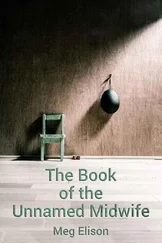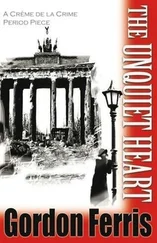A week later he sat weeping in the waiting room of a psychiatrist he had seen on two other occasions. The doctor had been closing in on setting the cocktail straight again when Tim failed to return, clear-eyed once again to the bullshit and the lies. He wept because in the midst of such lucidity, he could only be confounded by what mysterious force had compelled him to return now, by the layers and layers of complexity in a war he would never comprehend.
He called home again within the month. The phantasmagoria of heaven and hell that had whipped him into a frenzy the last time he spoke to her had been replaced by the cool and measured assessment of someone observing the objective differences in a before-and-after picture. Gone was his manic pace. The soul was once again unlikely. It was despairing news. It meant that he would not see her again, not here, not in any afterlife.
He would tell her anything, of course. Yes of course he would tell her that he loved her and that the soul was vibrant and real and death only an interlude. His banana, how she had taken care of him. She had come to him in far-flung places no matter the time of day or night. Of course he would give her every reassurance, he would say anything.
But Becka answered and told him that she was already gone.

He maintained a sound mind until the end. He was vigilant about periodic checkups and disciplined with his medication. He took care of himself as best he could, eating well however possible, sleeping when his body required it, and keeping at bay to the extent his mind allowed it a grim referendum on life, and he persevered in this manner of living until his death, which took place in the far north on a day of record snowfall, during a morning blizzard.
By then he was something a passing car couldn’t resist. Gaunt and weathered, limping sturdily, he walked the shoulder of the highway like a wasted beggar moving between two ancient persecuting cities. The driver turned to look at him as he blurred past, then picked the sight back up in the rearview mirror. There he receded slowly into a terrible smallness, into nothing, not even memory.
By then he was paying attention, as Jane had taught him, and had learned to distinguish between a hundred variations of unnamed winds. He couldn’t name the twitchy burrower with the black-tipped tail that scanned an upland prairie for danger, but he knew it as well as the raspy grass with the flowering spike that left soft yellow pollen on his pant legs, and he knew it as well as the bright constellation that suddenly resolved itself out of a confusion of stars. He knew fee-bee fee-boo, fee-bee fee-boo came from a small bird with brushed gray wings and a tail as firm as a tongue depressor, and he knew the sharp clear whistle of set-suey, sedu-swee-swee of a scythe-beaked bird he saw often in winter, and he knew the French-inflected call of a small stately black and white bird who sang teehee tieur, teehee tieur— though he knew none of them by name.
By then he had stood on the riverbank and watched men shoot into the running water. He was startled by the echo. He watched them pull their mauled catch from the water to the parched rocks. Half the meat was missing. He had to wonder the point, if it was a matter of sport, or a supply of bullets greater than hooks and nets.
By then he had remembered the morning he returned to her hospital room to tell her he worried about the insufficiency of the final words they would say to each other. They had an awkward ceremony that made her laugh. “Good-bye, then!” she had said to him. He could not forgive himself that he had urged her to cook a meal as she was dying, so he clung to the memory of that morning.
By then he had given up everything but his need for shelter and nourishment, but there had been afternoons he spent in community libraries, reading books he would not finish and sending and receiving email. That was how he learned one day that Becka had married. She sent pictures of a small outdoor ceremony. He had never seen her look so healthy or beautiful, or so old. He was sorry that neither of her parents were in attendance. He wrote back to congratulate her. “How big Jack has gotten!” he said in response to seeing the little man in his tuxedo. He left the library with an uncertain heart, grateful that he had been spared the disappointment of anticipating an event he could not attend, but hopeful that she had done so out of mercy and not forgetfulness.
By then they wondered if he had the money for the things he brought up to the counter. He was a certain type, mute and suspect. Some contrariness kept such old men moving, as if to stop and settle would be to fall back into the human business of bickering and violence. Better for all if he was on his way. They watched him leave the store with his small bundle and stand on the other side of the road packing as if for some journey by foot, and they wondered if he knew which passes to avoid, what roads closed at the start of November, and if his permits were in order. They predicted some quarrelsome run-in or tragic end. He had a whippy sort of strength and an old rapport with his pack, which he shouldered on with a burdened grace. They watched him walk along the side of the highway, asking nothing of the passing cars and leaving town without having uttered a word.
He wanted a drink of water. It was deliciously painful, his thirst, a thought to relish quenching.
He had yet to open his eyes. He was lucid and alert as he usually was in the first few minutes after waking. He heard the wind outside, sonically layered and multidirectional, and he heard the crackle of descending snow and the slight sizzle of one flake as it caught hold of the combed bluffs accumulating against the side of the tent, shaped by the wind. His thirst persisted beautifully. What gratification would come when he finally rose and poured a cool cup into the lid of the thermos.
He made no effort to move, though, so content in the bedroll, so warm and easeful, while the wind howled madness outside and drove the snow to frenzy.
A similar feeling had overtaken him the night before. He had pitched the tent at the end of his walk and climbed exhausted inside the bag, expecting to fall quickly into a long and satisfying sleep. Despite the severity of the weather, he liked it up here almost better than any other place in the world. The bustle and tempo of people proceeding with their eventful lives could not cripple him with longing here, and it was unlikely that he would be awakened by a meddlesome authority or a group of noisy jerks. He relaxed into the warmth of the bag and felt his body, still humming with the jangle of his recent walk, wind down into a stillness that eventually made its way into his deepest interiors. The wind was just then starting to pick up, but beneath its bellowing he became aware of his heart whispering listen… listen… listen.… He heard the blood pump out of his chest and flow down his arteries to pulse faintly at his wrist and in the hollow beside his anklebone, and his breathing lifted him up and down, up and down, and he heard the calmness, like the coals of a settled fire, of his rested bones. He luxuriated in his exhaustion. The weariness was inseparable from pleasure. He half struggled to stay awake just to stretch the moment out for as long as possible.
Now it was morning. It was wrong to dawdle like this. Wake up, pack up — that was the protocol. This sort of indulgence could be dangerous.
But was there anything comparable to a languorous morning in bed, under the warm confines of a blanket, while you kept the vicious cold at bay another minute, and then stretched that one minute out to five? It was only a bedroll set on top of an inflatable pallet inside a makeshift shelter, but he didn’t open his eyes. He listened to the wind. He heard other sounds, too: a clock ticking in a warm kitchen, the coffeemaker sucking and percolating on the counter, Jane treading lightly across the floor, gathering the cups, opening the refrigerator for the milk. “Tell me where you are and I’ll pick you up,” she said from somewhere in the distance.
Читать дальше













